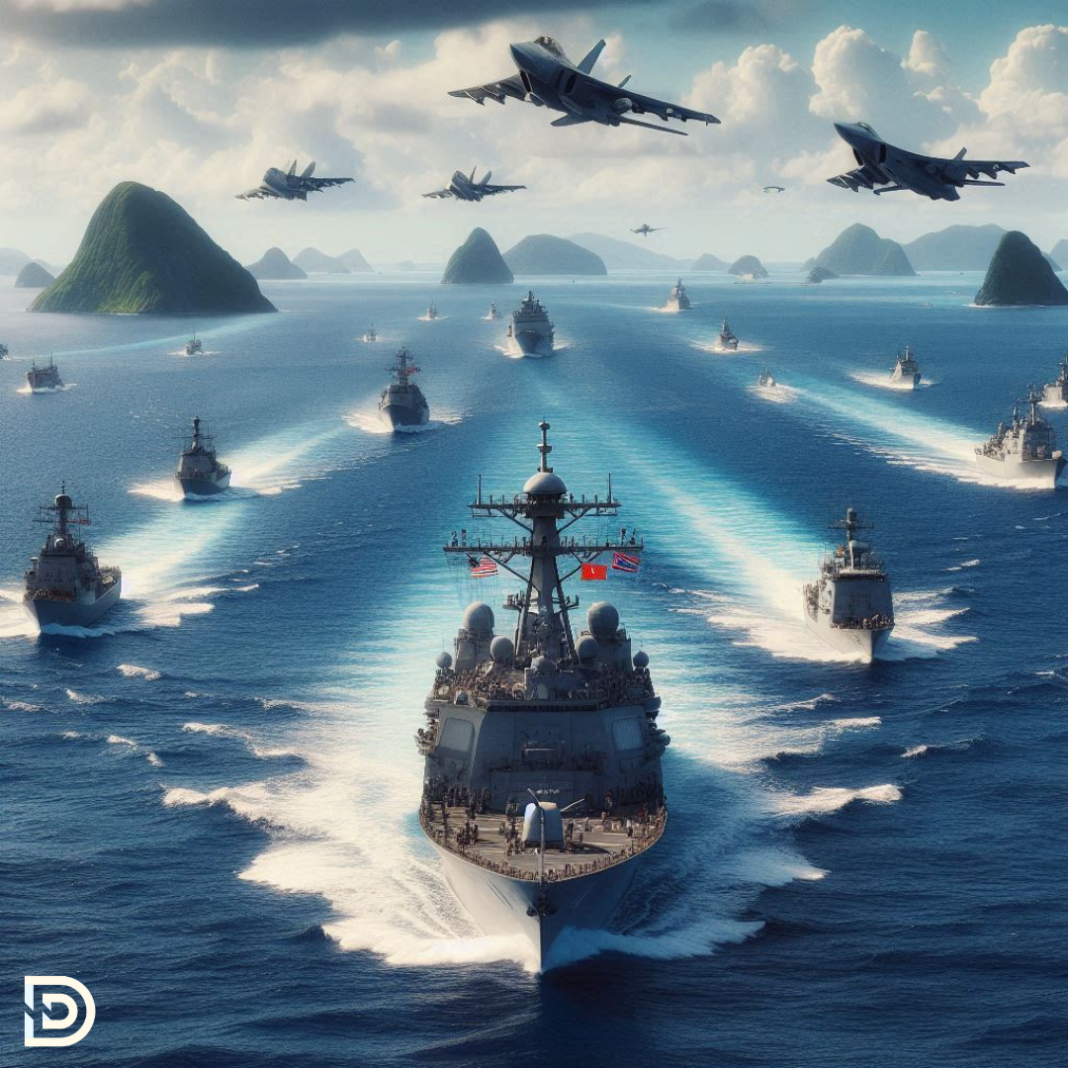The South China Sea has been a contested region for many years. Several countries claim different parts of its waters and islands. Recently, tensions rose due to a joint patrol by the Philippines. External countries like the US, Australia, and Canada joined the patrol. China, which claims much of the South China Sea, responded negatively. They have a strong presence in the region. China views the joint patrol as a threat. They believe it undermines regional stability.
Joint Patrol Sparks Concerns
The US, Australia, and Canada recently joined the Philippines for a joint patrol. This patrol took place in the South China Sea. The countries said their goal was to address maritime challenges together. They also aimed to uphold international laws and the “rules-based order.” However, China has a different view of the patrol. Chinese officials see it as an intrusion. They believe outside forces are interfering in the region. China considers the South China Sea part of their sphere of influence.
China’s military responded swiftly. The People’s Liberation Army (PLA) Southern Theater Command held joint naval and air combat patrols near Huangyan Dao. This area, also known as Scarborough Shoal, is one of the disputed regions within the South China Sea. China claims this area as part of its territory, and the Chinese military stated that their actions were to protect their rights and interests in the region.
China’s Response to External Forces
According to China’s Ministry of Defense, the joint patrol conducted by the Philippines and external countries goes against the spirit of regional cooperation. A Chinese defense spokesperson made it clear that these joint patrols, even if presented as peaceful or cooperative efforts, are viewed as harmful actions that do more to destabilize the region than bring about peace.
China’s military spokesman also emphasized that the US and other countries involved are acting with a selective approach to international law. He mentioned that while these nations talk about following international law, they only follow the rules when it suits them and ignore them when it doesn’t. From China’s perspective, the presence of external forces, especially the US, is a major reason why peace has been difficult to maintain in the South China Sea.
The Chinese military warned that they would take necessary actions to protect their sovereign rights and maintain regional stability. This has been a consistent message from China over the years, as they assert their control and authority in disputed areas of the South China Sea.
The larger picture of the issues in the South China Sea
The South China Sea is not only an important area for fishing and trade, but it also contains valuable natural resources like oil and gas. This has led to several countries in the region, including Vietnam, Malaysia, the Philippines, and Brunei, to claim parts of the sea as their own. However, China has laid claim to almost the entire sea, which has caused significant tensions.
The Philippines, a country located near the contested waters, has often found itself in a difficult position. On one hand, it seeks to protect its own interests and territorial claims. On the other hand, it has to manage its relationship with China, which is a powerful neighbor. The Philippines’ decision to conduct joint patrols with external forces has been seen as an attempt to strengthen its position and protect its interests.
China, however, has made it clear that it will not tolerate what it sees as interference from external countries. China sees the US, Australia, and Canada’s coordinated patrols as a threat. Chinese officials believe that these countries are trying to increase their influence in the region by teaming up with the Philippines.
Clashing Claims and International Law in the South China Sea
The South China Sea situation is still volatile as a result of these ongoing disputes. Both sides have different perspectives on how international law should be applied in the region. While external countries talk about maintaining peace and stability, China insists that their actions are causing more harm than good.
China’s message is straightforward: The South China Sea should be managed by the countries in the region, not by external forces looking to interfere. They have reiterated their stance that any actions taken by external countries will not be accepted or supported, no matter how these actions are justified.
In response to what they perceive as provocations, China has promised to continue protecting its sovereignty and interests in the South China Sea. This remains a sensitive issue, with many eyes on the region to see how tensions might unfold.
This latest clash over the South China Sea demonstrates the complexities of the situation. As different countries navigate their claims and try to protect their interests, the involvement of outside forces only seems to escalate the already fragile environment in the region.

